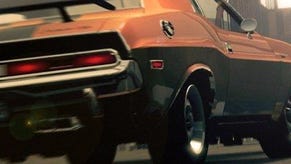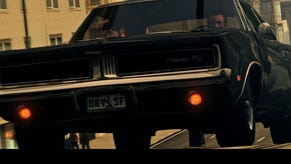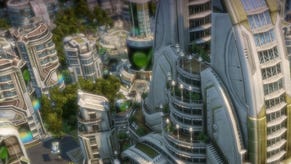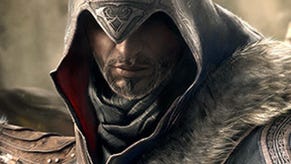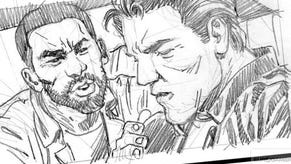Driver: San Francisco
Life on cars.
Driver used to be the game where you could get out of your car. Now it's the game where you can get out of your body. That said, you can't get out of your car anymore. Bloody life, eh?
Driver: San Francisco has scrapped on-foot sections because everybody else is doing them these days. Instead, going completely out-of-body is Driver's new Big Idea, for an age in which all driving games need Big Ideas, whether it's Split/Second's explosives and jaunty use of mid-word punctuation, Blur's social networking and power-ups, or Gran Turismo 5's absurdly long delays.
Reflections, the developer behind Driver, is calling its new mechanic Shift, and while it seems quietly deranged at first - a driving game in which you can hop into another car further down the road if you're getting left behind - it's a fascinating idea with some brilliant applications.
Reflections gets the justifications out of the way quickly. Tanner is a cop who believes an accident has left him with the power to detach his consciousness from his corporeal form and fling it out into the world where he can grab passing cars and commandeer them. In actual fact, an accident has left him in a coma, so I guess the joke is on him.
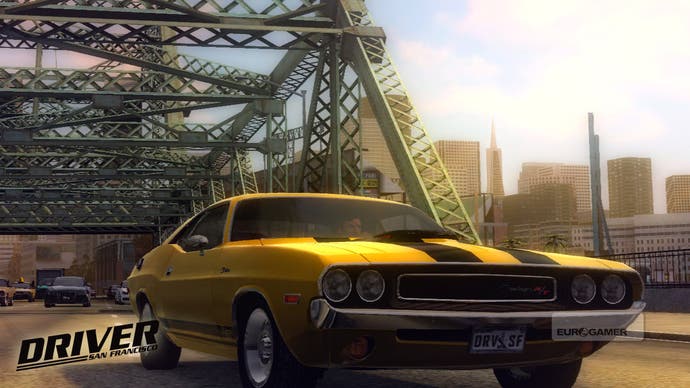
Whatever's really happening, Shift is something you won't want to stop messing about with. One tap of a face button and you're out of your car, floating over the nearby stretch of road, from where you can highlight passing vehicles and see their stats, and then one more tap of the button warps you into them. If this were the 1950s, I'd have no problems declaring that little mechanic "nifty".
At the most superficial level, Shift means that chases have a real intensity to them, as Tanner's spirit hops from one car to the next to take down his foes. It quickly becomes clear that there's a rich strategic component too: why chase after somebody when you can steal a bus further up the road and ram it into them?
Later, missions even get rather puzzly. We're promised a flaming petrol tanker that you can cool off either by running over hydrants or by stealing a fire truck and sloshing it down with a side-on collision. (I'm pretty sure these strategies don't work in real life.) Back in 1999, Driver was one of the first sandbox games in terms of its world; now, a decade on, its missions are finally catching up.
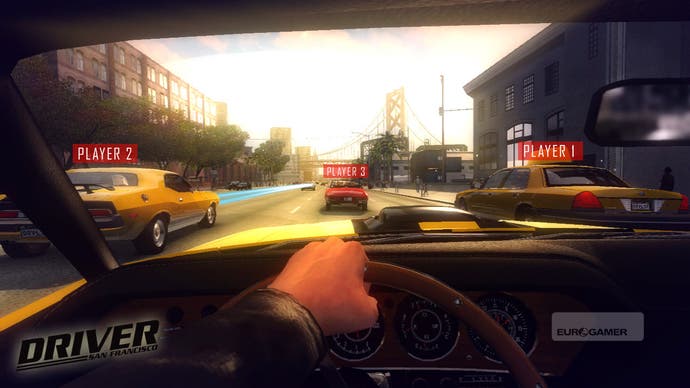
Shift can be upgraded over time - you'll be able to increase its range over the course of single-player until you can take in almost all of San Francisco's 208 miles of roadway - and it's not free to use, either. Rather, it has to be earned by driving in a cool way: catching air, drifting, heading into oncoming traffic. Anybody who's owned a new Toyota in the past few years shouldn't have a problem.
Also, think about this: Shift opens Driver up in terms of its storytelling as well as its mechanics, as when Tanner's spirit hops into a new car the audience gets a sense of the lives of its owners. Reflections is promising hundreds of bespoke characters, all with their own little stories, and it will be using picture-in-picture to help the plot unfold without breaking up the game's flow.
If all of this sounds potentially rather distracting, players will always see Tanner as Tanner, even when he's hopped into someone else's body. It's a nice steal from Quantum Leap, and the developer is hoping it will be enough to remind you that you're still a cop who thinks he's on a desperate mission even as he eases an ice cream bus out into heavy traffic.
Creating a feeling of coherency isn't the only challenge for the team: Shift has to be seamless when it works - an instantaneous pan out from Tanner's car to the wider environment. It is so far, and that's pretty amazing given the game's huge city filled with such densities of traffic, delivered at a rate that never drops below 60 frames per second.

